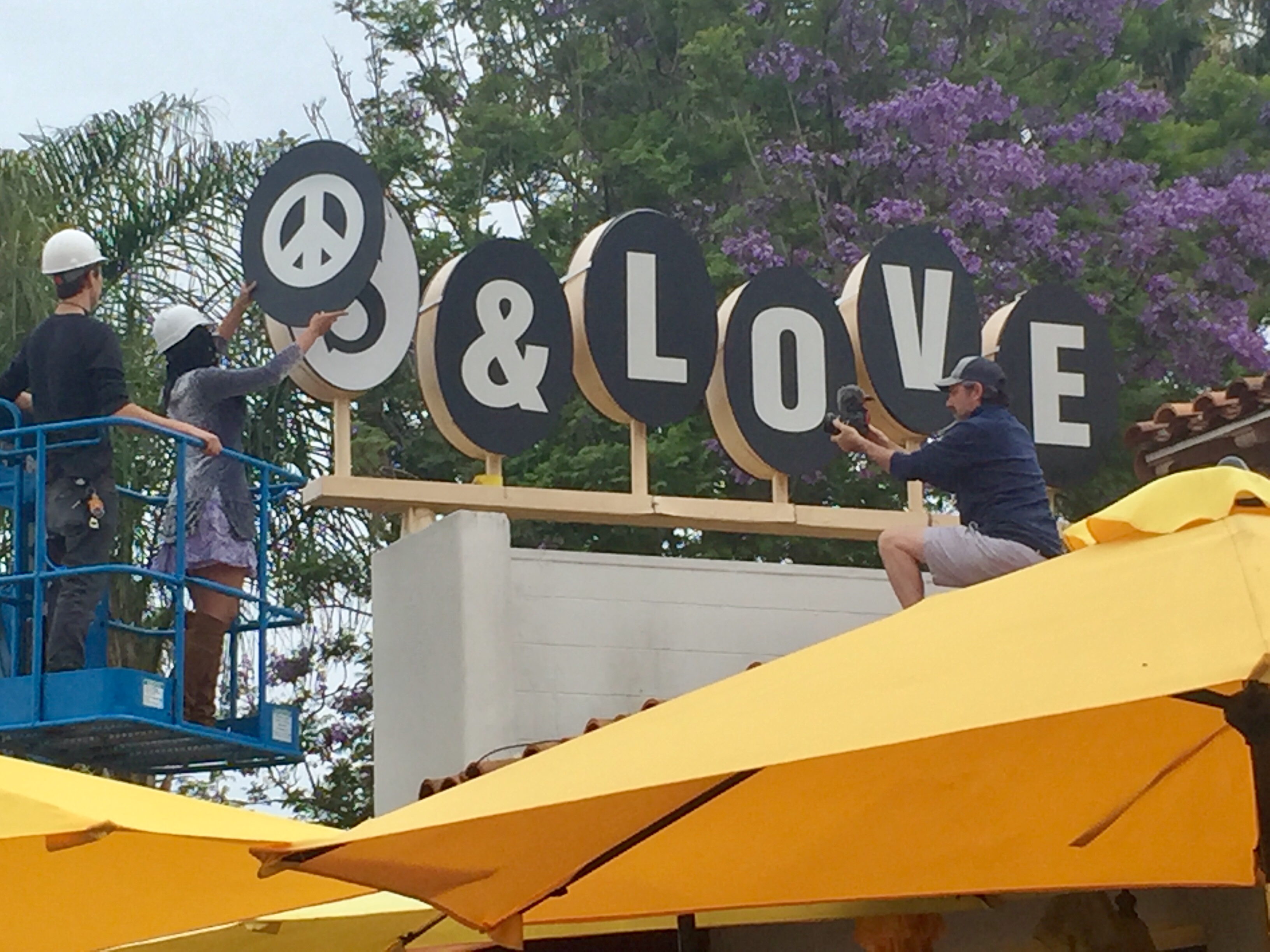The Symbol of Sambo’s
Santa Barbara Pancake House Owners Respond to Racism Concerns by Covering Sign, Changing Name

Covering the Sambo’s Restaurant sign last week was probably as close as Santa Barbara will ever get to tearing down a Robert E. Lee statue.
The restaurant, considered an iconic eatery by many who relish in its 63-year-long history, is seen by others as a blatant symbol of racism, as its name — which reportedly came from combining the names of its original founders — is also a derogatory term toward people of color. Opened in 1957, the restaurant was the first of what became a nationwide change and remains the last one standing, as the others had closed or rebranded due to controversy and bankruptcy issues by 1982. Last Friday’s sign covering and the forthcoming name change came as waves of Black Lives Matter protests fuel the removal of monuments in cities across the country that have ties to white supremacy, racism, and slavery.
As protests continued in Santa Barbara through the weekend, some pushed to dig even deeper into the city’s history, specifically calling out Mission Santa Barbara. “Hidden behind this fraud of consumerism and tourism, Santa Barbara was built with racism on the backs of the native people,” said protestor Lucas Flores-Piña, a recent San Marcos High grad, on Sunday. “The mission is a monument to slavery.”
Get the top stories in your inbox by signing up for our daily newsletter, Indy Today.
Santa Barbara may not be ready for that quite yet. Indeed, the movement just to change the Sambo’s name required the protests’ momentum plus thousands of signatures demanding that the waterfront restaurant take action. The pancake house overlooking the beach on Cabrillo Boulevard was the first of the more than 1,000 Sambo’s that later opened up across the county at the height of America’s pancake house obsession.
When protests over the name first began in the 1970s, Santa Barbara remained the sole location to keep the name, in honor of its founders, Sam Battistone Sr. and Newell Bohnett. “This name for a small pancake and coffee shop began quite innocently and is now part of our family history, which we have held onto, confident that there was no racist intent,” said Chad Stevens, one of the owners and grandson of Battistone, Sr. “Still, we understand that intent is one thing and perception is another. With the changing world and circumstances, the name isn’t just about what it means to us, but the meaning it holds for others.”
Not everyone buys the name story, though. Douglas Hayes, a criminal defense attorney born and raised in Santa Barbara, claims to remember the day Battistone Sr. selected the name. About 10 years old at the time, he recalls sitting in the booth of the pancake house with his mother and Battistone Sr. at the exact location the restaurant sits today.
“Sam wanted to open a pancake house,” Hayes said. “He told my mother he was thinking of calling it Sam’s Purple Pancake Haven, and she offered a better idea and she recommended a story about a little Indian boy because of the story’s connection to pancakes.”
His mother, Barbara Hayes, ran the now-closed Humpty Dumpty preschool when the 1899 children’s book The Story of Little Black Sambo —a story originally about an Indian boy who turns four tigers into butter that he puts on his mother’s pancakes — was still popular. The restaurant contains paintings from the book, too, further suggesting that the name was not just merely a combination of Sam and Bo, but rather a tribute to the children’s story which has been on America’s banned book list since the ’70s.
“I can count on one hand the last 23 years the individuals who came in and asked for the name to change,” said the restaurant’s spokesperson John Davies, explaining that there had not previously been much vocal concern over the name since the national controversies 40 years ago. “It wasn’t a movement. When it was a larger chain, it was, but Chad and Michelle don’t have any connection to the larger chain.”
The Sambo’s reaction — which for now features the old sign’s letters being changed to “☮ & Love” with a new name on the way — reveal how well the protests are bringing about actual change. The woman who began the petition to change Sambo’s name, Rashelle Monet, was invited by the Stevens family to help cover up the sign herself. Watching a black woman, hoisted in the air by a crane to cover up the Sambo’s letters one by one was a historical moment, and the national media was on hand to broadcast the scene.
This week, protests about the killing of George Floyd and police brutality against people of color are continuing across the country. Here in Santa Barbara, a pancake house’s name change was the first symbolic response. If the protests continue, could the mission be next?
At the Santa Barbara Independent, our staff is working around the clock to cover every aspect of this crisis — sorting truth from rumor. Our reporters and editors are asking the tough questions of our public health officials and spreading the word about how we can all help one another. The community needs us — now more than ever — and we need you in order to keep doing the important work we do. Support the Independent by making a direct contribution or with a subscription to Indy+.



